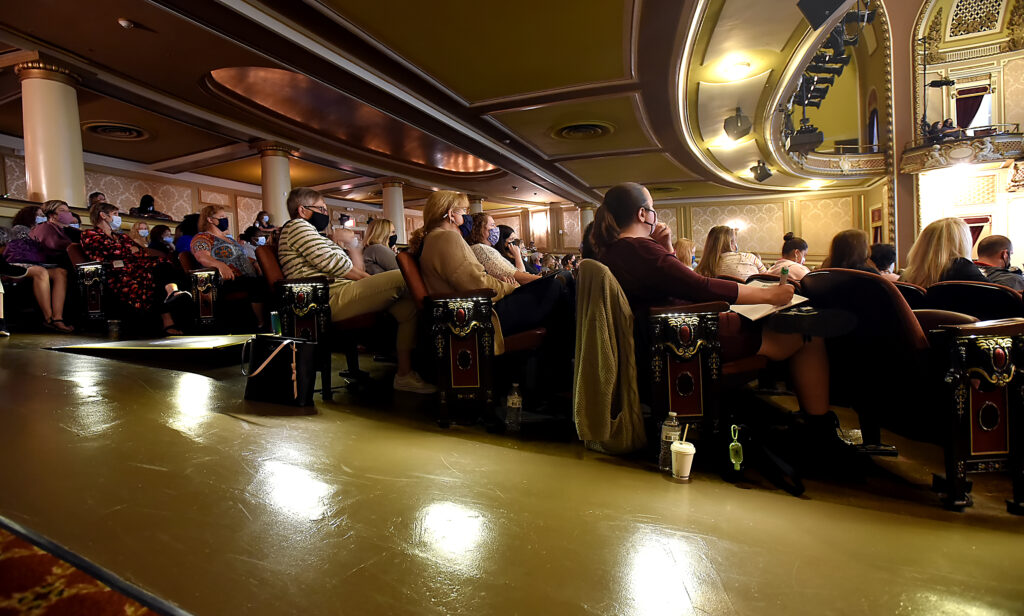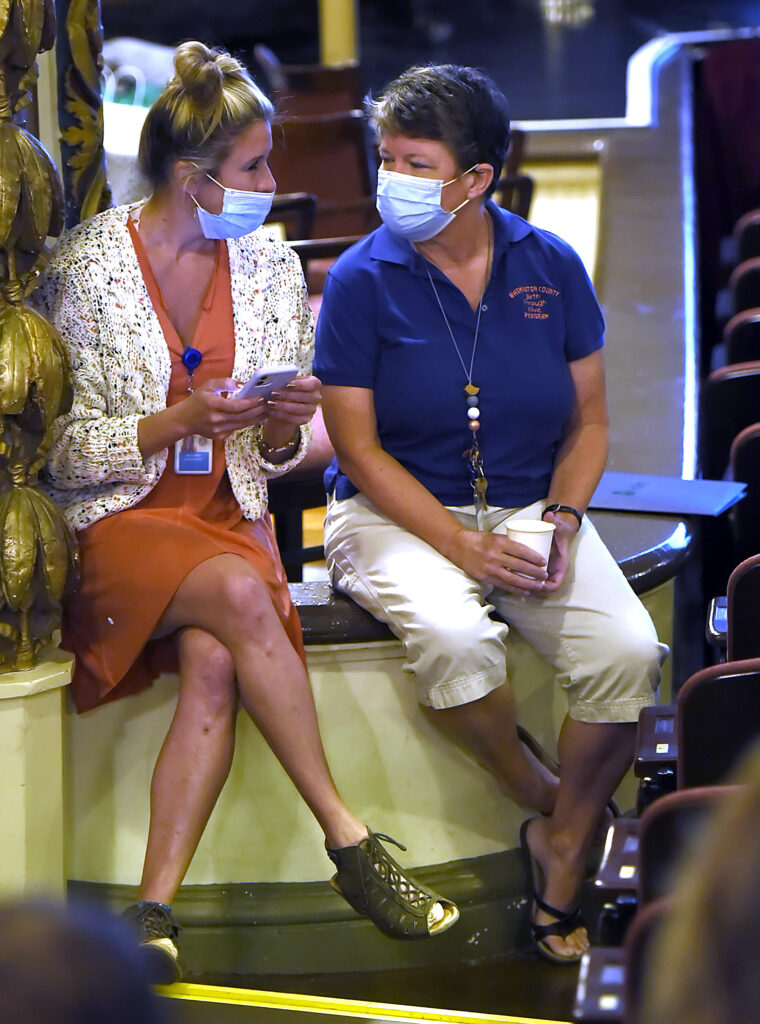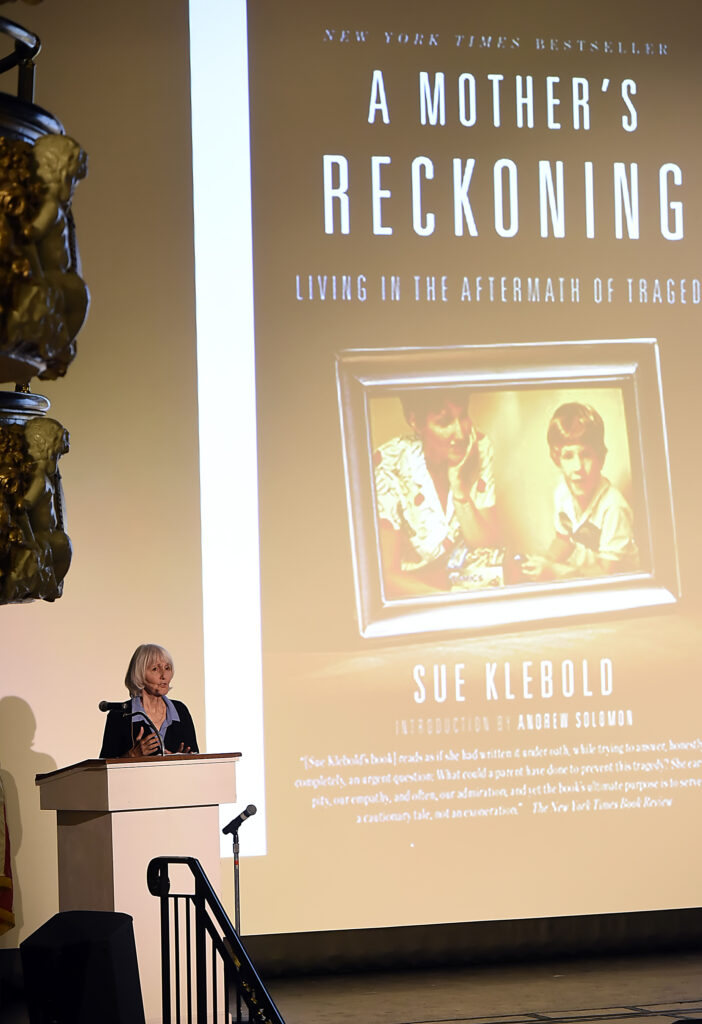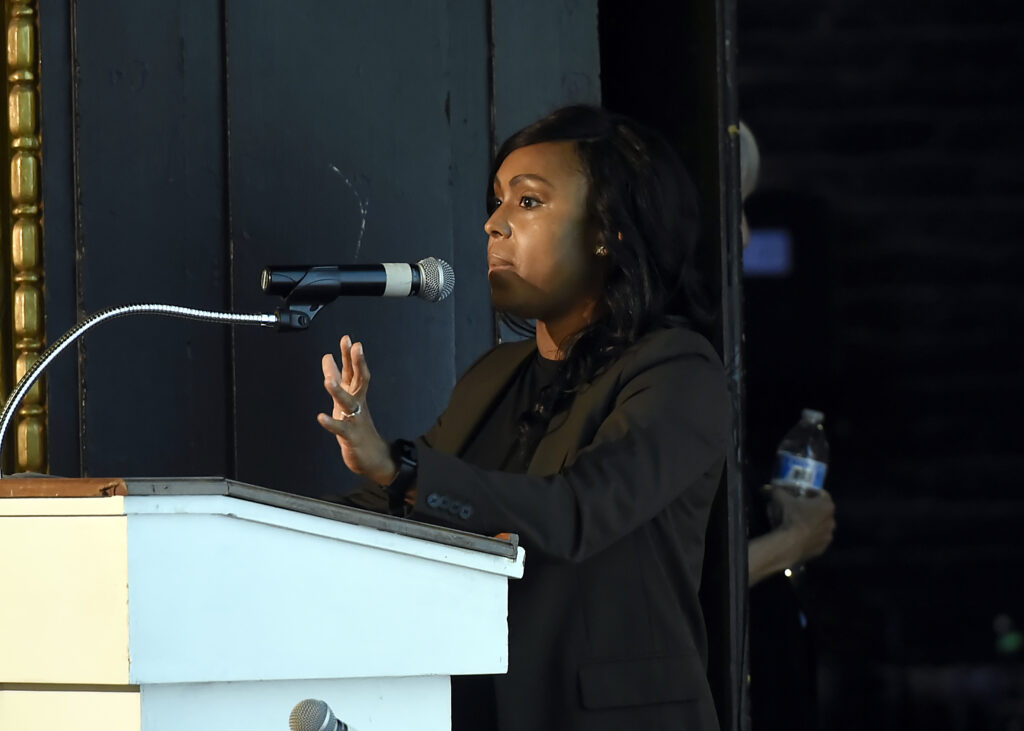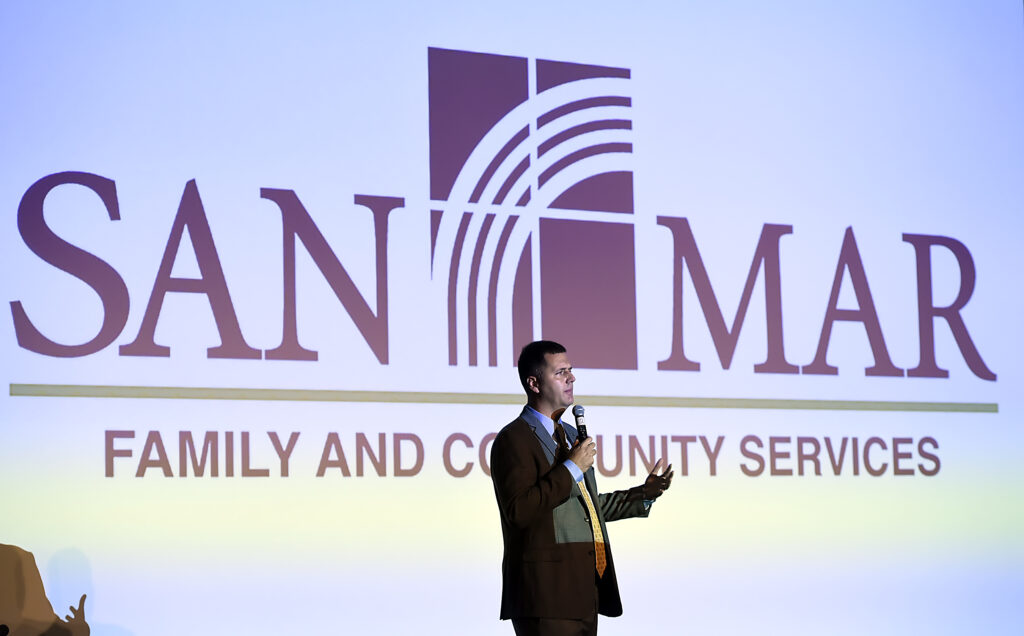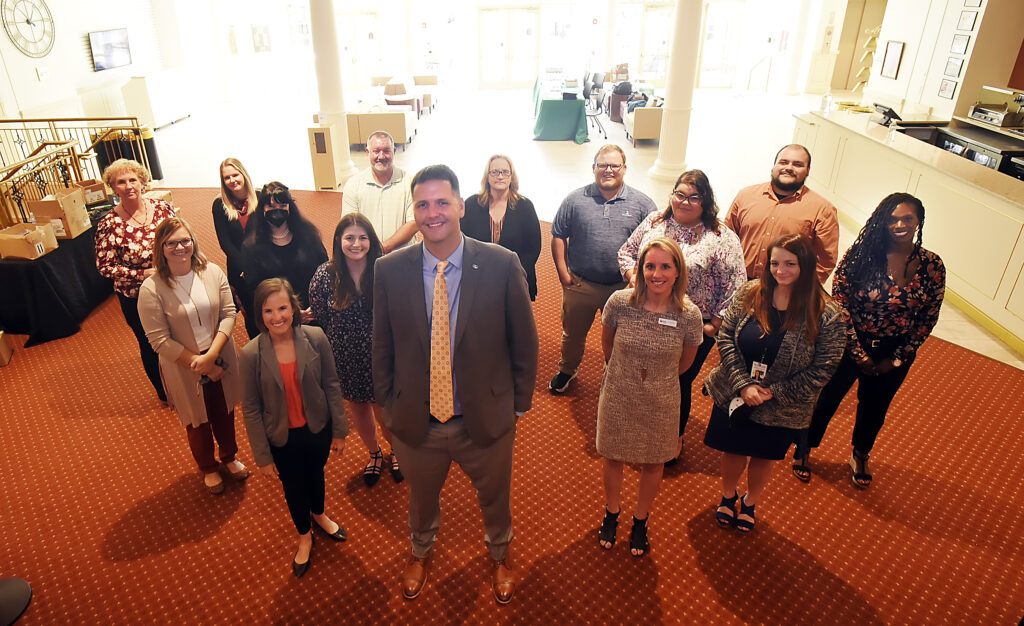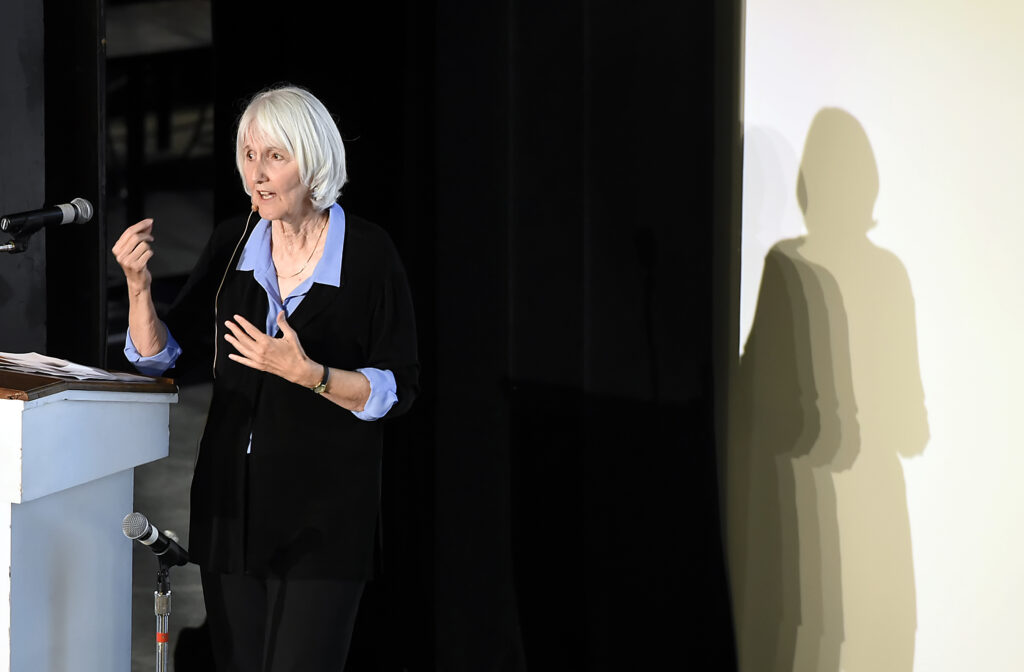
After a year and half of delays and two postponements due to COVID-19, the annual community training held by Bester Community of Hope, a San Mar initiative, finally took place with safety precautions in place this past Thursday, October 7th: It was worth the wait.
Over 650 people secured tickets to enter the Maryland Theatre for the event, with this year’s theme “Breaking the Cycle” focused on addressing systems change and exploring individual actions where we can take ownership. The nationally recognized speakers helped to craft the message of “pay now or later” sponsored by the Maryland Department of Human Services of Washington County and the Alice Virginia & David W. Fletcher Foundation.
Mental Health advocate Sue Klebold began the day sharing the tragic story of her son and his involvement in the Columbine school shootings. Throughout her testimony she was able to share her experience as a mother of a young man dealing with unrecognized mental illness, and provide important lessons learned to the audience. “I learned that for suicide prevention, love is not enough,” Klebold explained. “And if I could go back and give myself advice I would say ‘shut up and listen’. Instead of telling our kids what we believe is true about the good things about them, let them talk. I’d go back and say, ‘tell me more’.” Following her riveting personal story, Klebold sat down for a 30-minute interview with Shamoyia Gardner, Executive Director of Strong Schools Maryland, focused on the intersection of mental health, schools and neighborhoods, exploring tangible tools to consider for school systems and the critical need for prevention efforts as a part of the mental health strategy.
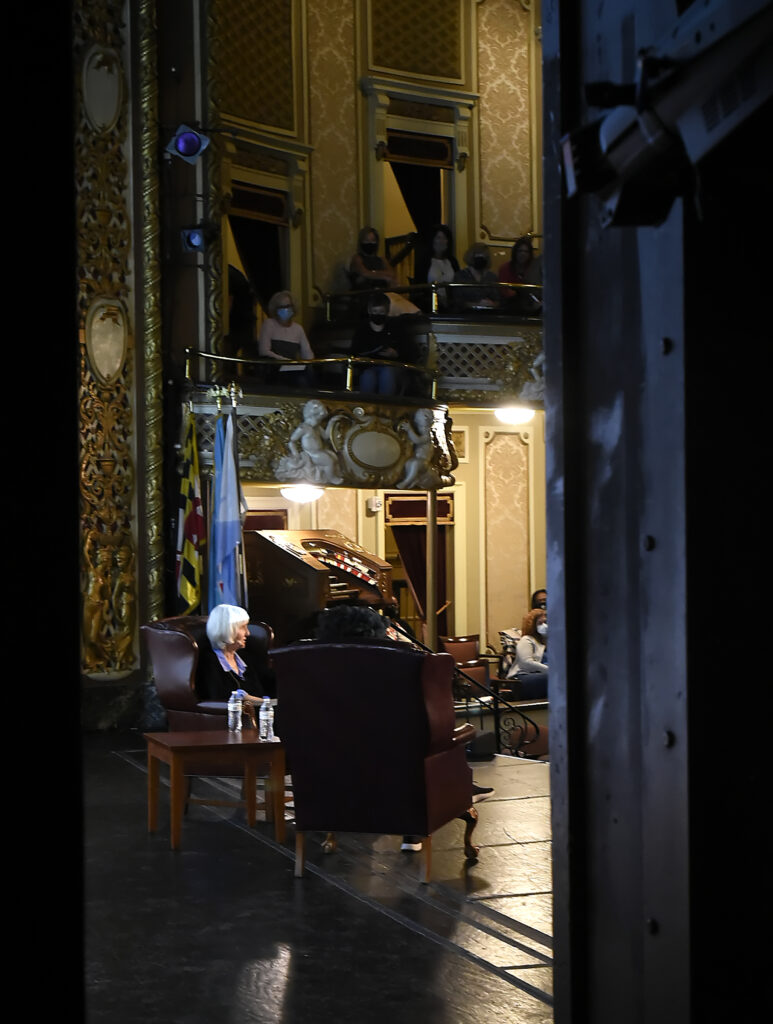
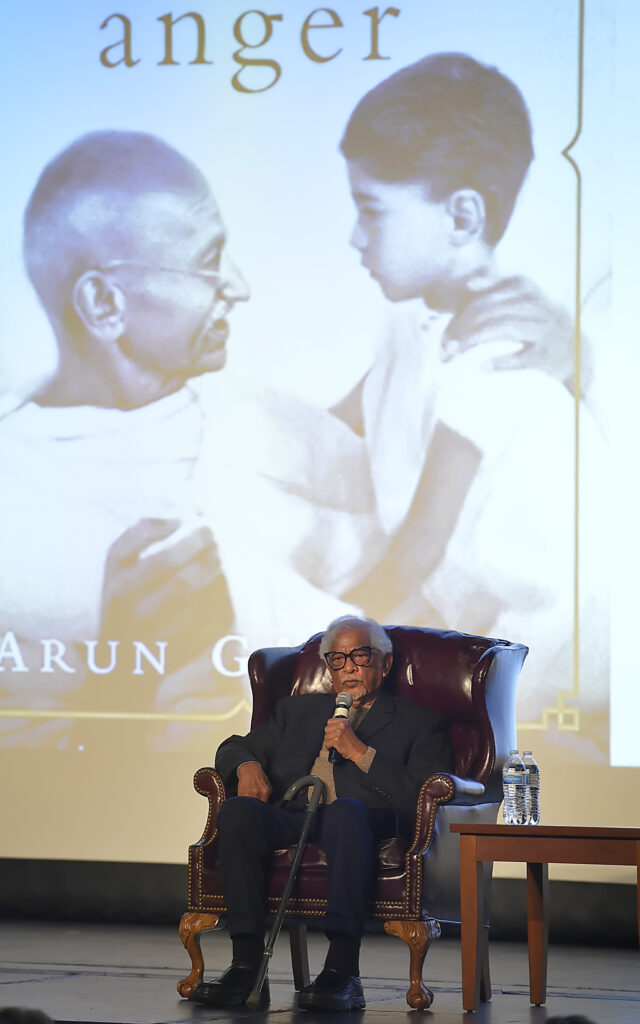
Best-selling author of “The Gift of Anger” Arun Gandhi, the grandson of Mahatma Gandhi, explored how the lessons of non-violence from his grandfather remain relevant today as themes of racial injustice and equity concerns persist in society. “One thing is clear today as it was then, we are all connected. We are still approaching dealing with the mind without the body. The person without the environment.” Following his exploration of compassionate capitalism, restorative practices along with key lessons from his grandfather, an audience member asked, “Can you think of a time where you were angry and how you responded?” Gandhi proceeded to illustrate how a key figure in the apartheid effort in South Africa, who was directly impacting the freedom of his family, came to visit South Africa and spent many days with him as his required tour guide on vacation. He explained to his persecutor his plight and committed that regardless of this to give him the best possible experience but still challenge his thinking while showing him unconditional love. Gandhi explained, “At the conclusion of his visit, he hugged me and wept, and in the years that followed, he stood against apartheid publicly and joined the cause.”
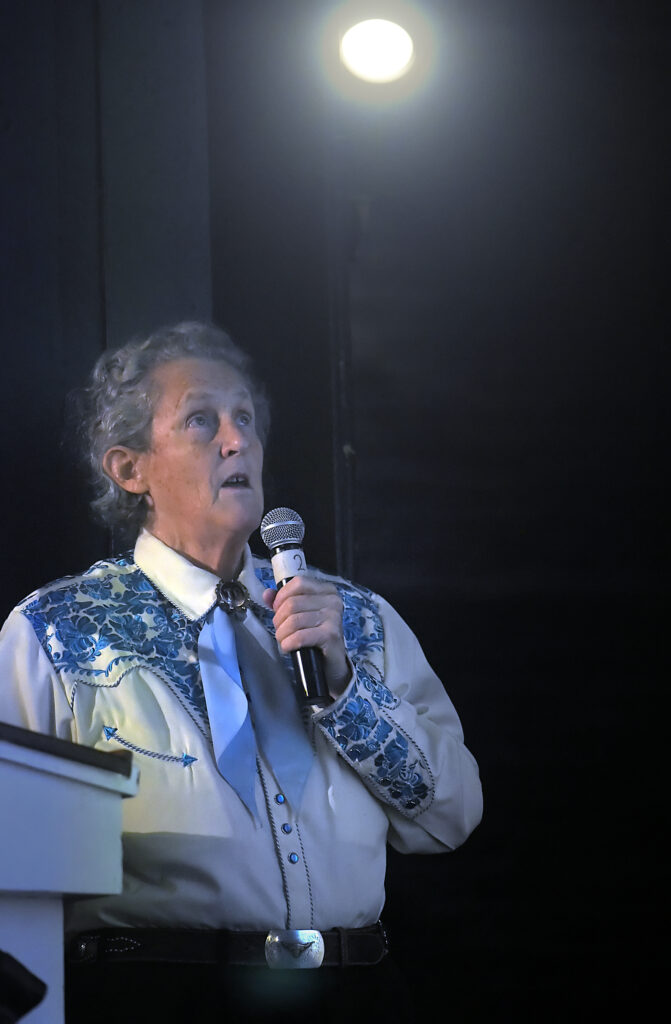
The session closed with world renowned autism advocate and animal scientist Temple Grandin, a case study in hope, resilience and the power of early intervention. Grandin spent her keynote address exploring all of the signature moments where support, connections and the right opportunities helped her thrive even with many personal challenges. She implored the audience that this was not unique to her, and there were many “backdoors” that could be created to help others succeed and not to get stuck in one size fits all educational or vocational pathways. As she was peppered with many questions from the audience she explained, “Well, I’m not doctor, so I’m not qualified to give advice, so we’ll do what engineers do, let’s trouble shoot.” Thinking about her diverse experiences personally and professionally, she shared, “I’ve learned a lot today, with speakers from so many different backgrounds, it’s good to cross pollinate, so we can break out of our thinking.” As Grandin highlighted many practical examples for different age groups she shared an important lesson from her recent flight with a very casually dressed human resources manager in a large manufacturing firm. The HR professional explained he hires all their staff, but had never been in the warehouse where all the work occurred. Temple explained, “And that is the problem. We’re making decisions about people based on their ability to perform verbally in an interview, or what is written on paper. So I told him ‘If you want to really see what success looks like get your butt in the warehouse and talk to the people who work there! And wear what you’re wearing now, you’ll fit in better. You won’t regret that you did’.”
